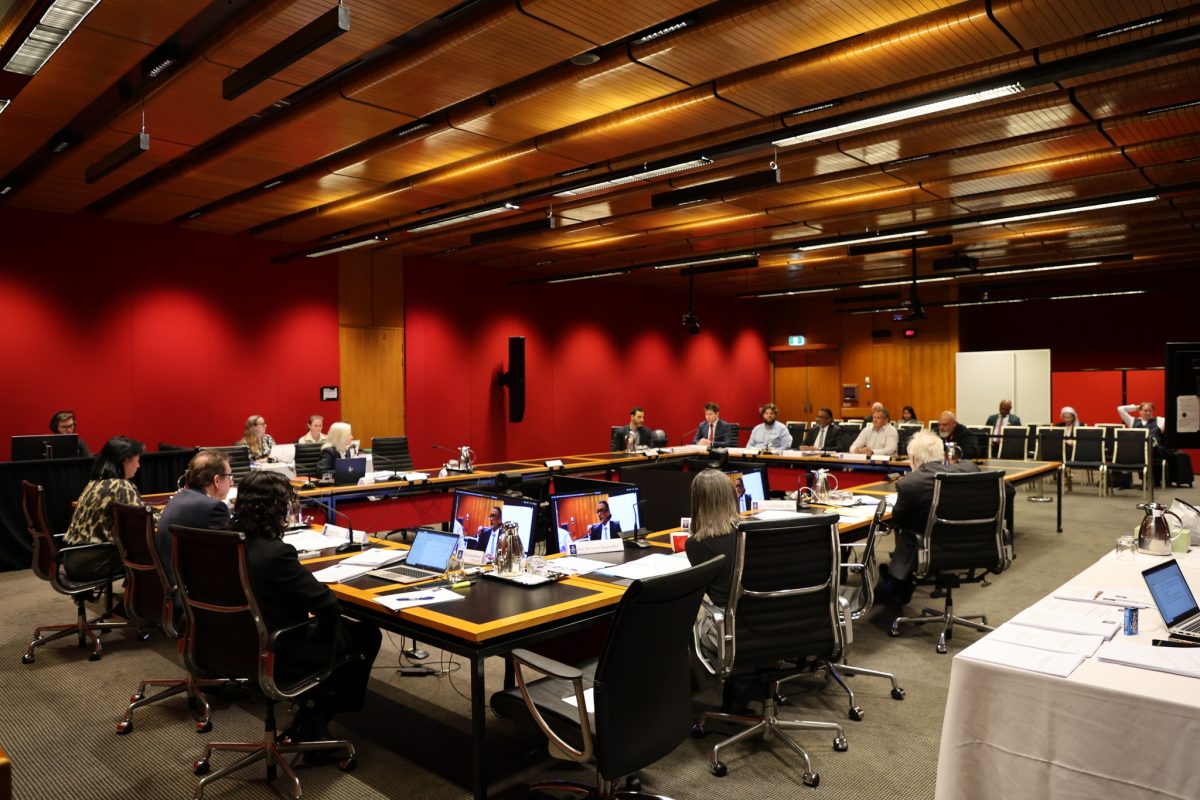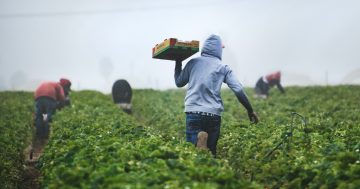
Shocking accounts of overcrowded accommodation and domestic abuse were revealed at the NSW parliamentary inquiry into modern slavery. Photo: NSW Legislative Council/Facebook.
WARNING: This article discusses domestic and family abuse.
A NSW parliamentary inquiry into modern slavery in regional NSW has shed light on temporary workers found to be paying Sydney rental prices for “overcrowded” and “substandard” accommodation in the Riverina.
This results in female temporary workers being forced to stay in abusive situations or risk homelessness, the inquiry heard.
Kirrilly Salvestro, deputy CEO of support service Linking Communities Network, told Region that workers on the Pacific Australia Labour Mobility (PALM) scheme were paying $300 a week per person in rent, on top of needing to clear the debt they’d incurred from airfares and visas within 16 weeks of arriving.
“Quite often we’ve seen men and women pay $300 a week per person,” Mrs Salvestro said.
“They’re living in housing which is substandard, and there are a lot of people in it.”
Griffith Mayor Doug Curran told Parliament on 19 June that he had been told of “bed hopping”, whereby groups of workers were forced to share beds – some sleeping in them during the day and others in the same sheets at night.
“There will be five people in the house but then there are another five people in the house when that shift goes,” Councillor Curran said.
“Then there are another five people in the house because there’s so much work, there are so many people in the area, and that’s only sustainable for a very short period of time.”
NSW Fair Trading’s Rent Check, which allows users to pit their own rent against the current rental market, showed that the median weekly rent for a three-bedroom house in Griffith was between $450 and $530. No data was available for houses with five or more bedrooms.
“We have an increasing number of women come to our service who are experiencing domestic and family violence and are on the PALM scheme,” Mrs Salvestro said.
“Because of that, they’re not able to work, because often the violence is happening with men, and I say predominantly men, because that’s most situations.”
The abusers may be other men also on the PALM scheme, other farm employees or the farmers themselves.
Women in these situations often feel an “obligation to do whatever they can to please” in what she described as a “fawning or coercive control situation”.
“They feel that if they say ‘no’ in situations, no matter who it’s with, that that’s going to put their employment in jeopardy,” Mrs Salvestro said.
“Or some women are unsure of what they can and can’t say no to as well.
“I think there needs to be a greater awareness of what the laws are in our country, and an understanding of participants that come that if you do this, this is the ramification.
“Often we are seeing the woman forced to leave employment, and there’s no ramifications for the man that is left in that employment.
“It’s not a woman’s fault that they experience domestic and family violence, yet the onus is on them to leave employment and to find alternative accommodation when it should be the perpetrators.”
Women’s Aid describes coercive control as “acts of assault, threats, humiliation and intimidation or other abuse that is used to harm, punish, or frighten their victim”.
Fawning, on the other hand, is a people-pleasing trauma response meant to avoid conflict in the short term, but may lead to worse outcomes for someone’s mental health in the long run.
“Don’t get me wrong, the PALM scheme is an absolutely fantastic scheme, but it just needs to work properly,” Mrs Salvestro said.
“If there was a whole greater approach of government, of service providers, of local councils, of community members, that would embrace these workers into the community but not put them below the poverty line and start off way below where they should be. That would be my solution.
“We have a great community, and we like to embrace people that come to our country, but when there’s a massive strain on service providers to provide for people, because the government’s put them in this situation, it’s very difficult for communities to take that.”
If you or someone you know is experiencing, or at risk of experiencing, domestic, family, or sexual violence, call 1800 737 732, text 0458 737 732 or visit 1800RESPECT.org.au.
The Multicultural Council of Griffith can be contacted at (02) 6964 4366, 0412 811 343 or [email protected].










